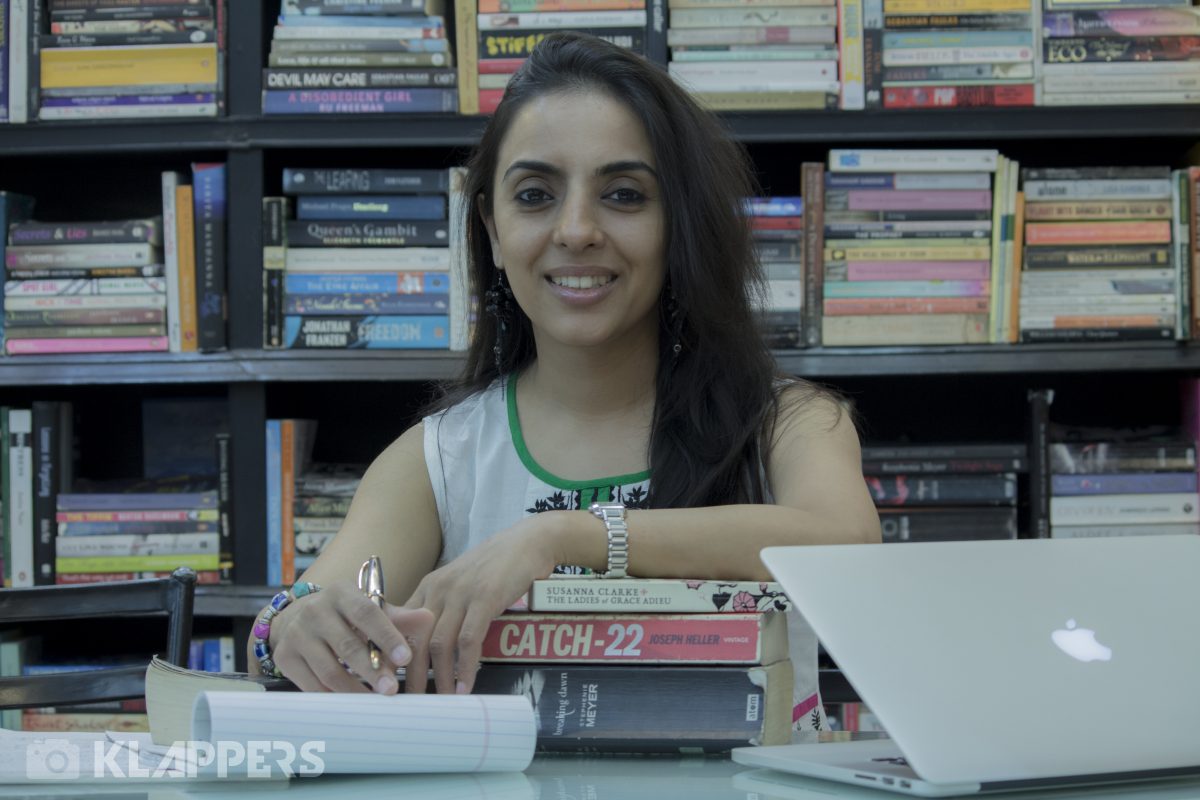A former business journalist, now an international author and a columnist, Vani Kaushal was born in Libya to Indian parents. She is an alumna of Kingston University, London, and Panjab University, India. She took a plunge into the world of fiction writing after trying her hand in business journalism, working for leading newspapers in India. Her debut rom-com, The Recession Groom, was released in 2015 to widespread acclaim with top class reviews in all the newspapers of India. Her novel also received praise from international readers.

Vani recently made a foray into non-fiction with her book, Flowers Forever (published in the US by World Wide Art Books). Her book celebrated the four-decade artistic career of Elizabeth ‘Lizo’ Shahenian, an award-winning American Armenian artist. Her new book received rave reviews and she was profiled by Hindustan Times, Indian Express, Lifestyle Magazine, Quint and Daily Post.
Vani’s new novel is already creating a buzz in India. Out this summer, it is a romantic thriller, titled, Seconds Later, with a young TV celebrity as its protagonist.
Vani splits her time between reading and writing novels. Occasionally, she also contributes columns to reputed online platforms.
We talked to Vani and found out that she did not aspire to be a journalist and it was just something that happened to her by chance. Vani said, “I hated Mathematics/Physics/Chemistry, and wasn’t cut out to be an engineer or a doctor. I was interested in learning languages and thought about joining Foreign Consulates, but my parents felt that Indian Administrative Services (IAS) would be a better choice. However, sitting for an exam with a million potential candidates vying for one job didn’t make much sense to me. I am glad, life took a better turn. I earned my Master’s degree in Economics from Panjab University, Chandigarh, where I was also a Gold Medalist, and an MBA degree from Kingston University in London. However, it was a programme in Mass Communications that set my foundation for a career in journalism. I started my professional writing journey in 2002 working as a business journalist.”

Journalism nurtured her creativity. It was exciting to meet new people, absorb their ideas, conceptualize and write stories, especially those that left her readers with a sense of hope, faith and purpose. Writing about social issues not only gave her a chance to tap into her own feelings, but also helped her to understand what the masses felt about them. The more she saw the effects of ‘positive’, ‘uplifting’ stories on the larger audience, the more she felt motivated to write them. In a nutshell, the response that she received for her stories gave a clear direction to her writing.
On being asked about the global issues that she thinks can be handled through journalism, she replied, “There’s nothing that can’t be handled through journalism, then whether it be climate change, malnutrition or disease prevention. However, when we look at global issues, the stakeholders involved are too many and widely scattered across countries. Therefore, creating content that is both insightful and impactful is not easy – but, it can be done, of course! Why not?”
Then she added, “Sadly though, media outlets the world over thrive on sensationalism, which, at least in the case of global issues, creates an environment of hatred, mistrust, misunderstanding and hostility. A case in point is the current corona-virus pandemic, a global health emergency, no less! – and just see how all the coverage around it has created an environment of panic and divisiveness. Therefore, it is not only important for media outlets to be aware of the content that they are creating, but also be aware of the impact it is having on people. That is responsible journalism! Isn’t it?”

Vani also shared her thoughts about how she sees journalism in the coming years. She said, “From the time I started writing to now, journalism has changed a lot. While traditional newsrooms have shrunk, the way content is being created and disseminated is way more different today. No one really knows how it’s going to be, there are some clear pointers, though. In the coming years, anyone and everyone who has an opinion on an issue will have a platform to express it, then whether it be provided by mainstream media or social media. However, this means that it will become ever more difficult to separate truth from lies and fake news. (One need just look at the so-called ‘newsy’ content that’s being circulated via Facebook, Twitter and WhatsApp to understand this!) There’s a possibility that issues that have a ‘sensational’ element to them might find preference over others that are more basic.”
She added, “Things are in a flux at the moment, so it’s a little too early to draw conclusions. I am hopeful that journalism will continue to play an important role in the society and bring about social change. It is called fourth estate for a reason, isn’t it?”
Further to this, Vani feels that there’s a difference between a journalist and a social activist and it’s important for a country’s youth to realise that as they make important life choices. She said, “Though there has been a rise of the activist-journalist in recent times, it is not encouraged much by the journalist community. Reason being, a journalist remains non-biased and presents facts as they are, without twisting or turning them, so people are able to make informed decisions. However, a social activist may try to twist facts in order to achieve certain outcomes.”
She added, “The lines between journalism and social activism have blurred, no doubt, but as far as possible, a journalist must try and remain objective and impartial, otherwise he/she stands to lose his/her credibility in the eyes of the stakeholder. Needless to say that credibility and reputation is everything in journalism.”


